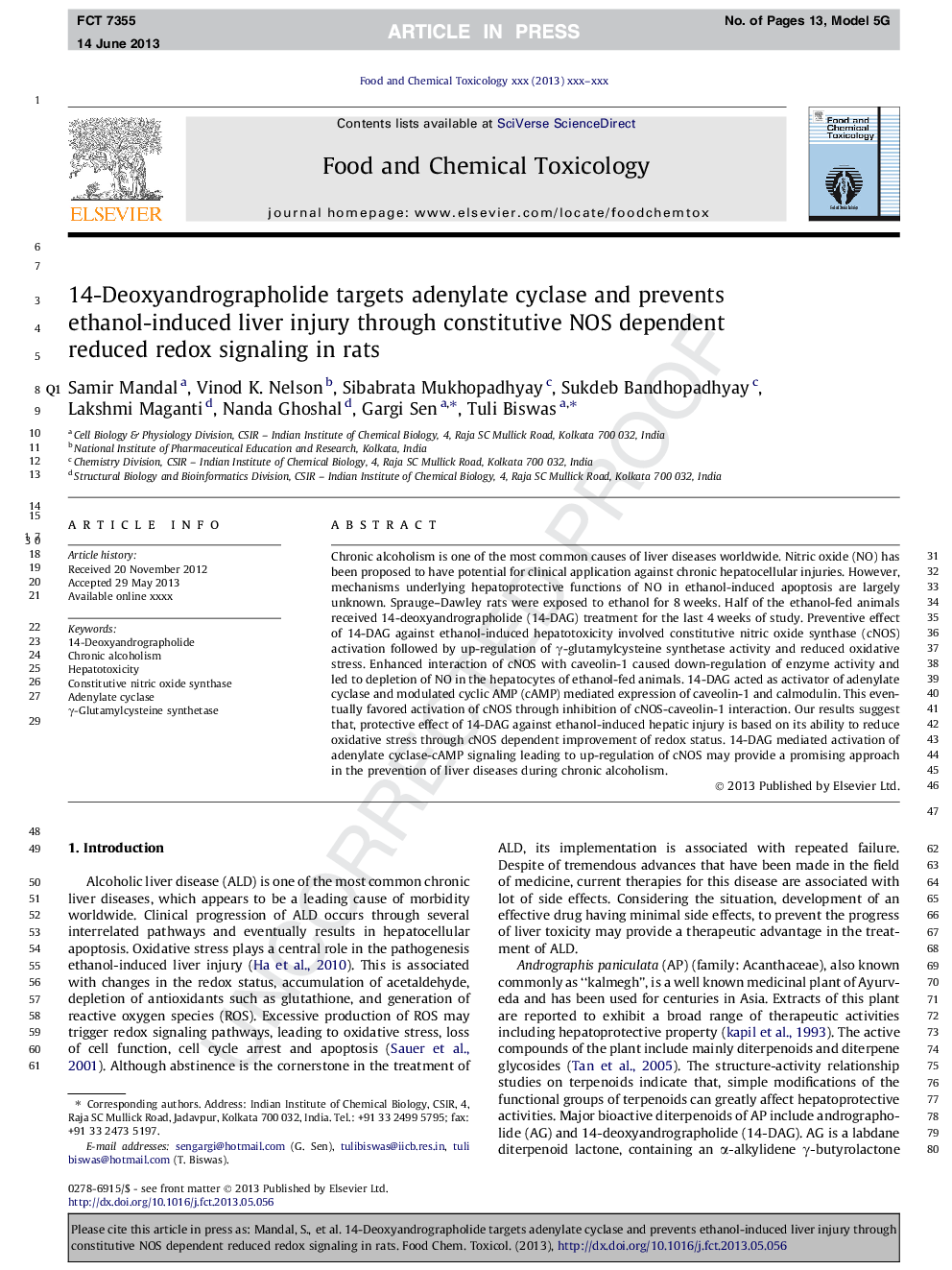| Article ID | Journal | Published Year | Pages | File Type |
|---|---|---|---|---|
| 5851024 | Food and Chemical Toxicology | 2013 | 13 Pages |
Abstract
Chronic alcoholism is one of the most common causes of liver diseases worldwide. Nitric oxide (NO) has been proposed to have potential for clinical application against chronic hepatocellular injuries. However, mechanisms underlying hepatoprotective functions of NO in ethanol-induced apoptosis are largely unknown. Sprauge-Dawley rats were exposed to ethanol for 8 weeks. Half of the ethanol-fed animals received 14-deoxyandrographolide (14-DAG) treatment for the last 4 weeks of study. Preventive effect of 14-DAG against ethanol-induced hepatotoxicity involved constitutive nitric oxide synthase (cNOS) activation followed by up-regulation of γ-glutamylcysteine synthetase activity and reduced oxidative stress. Enhanced interaction of cNOS with caveolin-1 caused down-regulation of enzyme activity and led to depletion of NO in the hepatocytes of ethanol-fed animals. 14-DAG acted as activator of adenylate cyclase and modulated cyclic AMP (cAMP) mediated expression of caveolin-1 and calmodulin. This eventually favored activation of cNOS through inhibition of cNOS-caveolin-1 interaction. Our results suggest that, protective effect of 14-DAG against ethanol-induced hepatic injury is based on its ability to reduce oxidative stress through cNOS dependent improvement of redox status. 14-DAG mediated activation of adenylate cyclase-cAMP signaling leading to up-regulation of cNOS may provide a promising approach in the prevention of liver diseases during chronic alcoholism.
Keywords
Related Topics
Life Sciences
Agricultural and Biological Sciences
Food Science
Authors
Samir Mandal, Vinod K. Nelson, Sibabrata Mukhopadhyay, Sukdeb Bandhopadhyay, Lakshmi Maganti, Nanda Ghoshal, Gargi Sen, Tuli Biswas,
